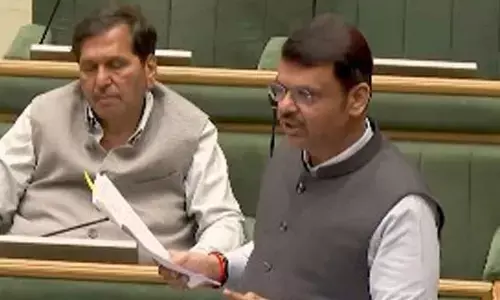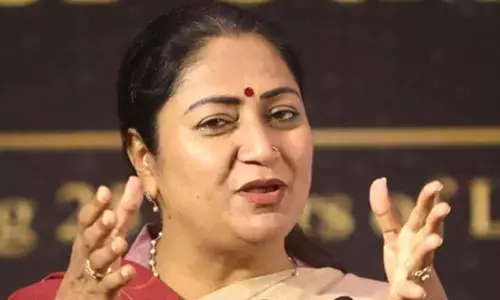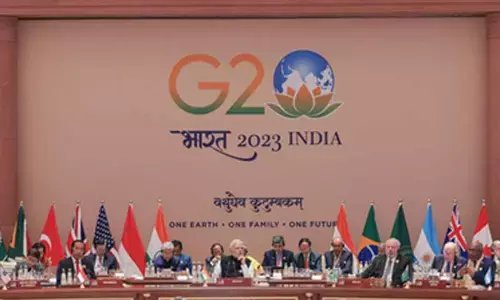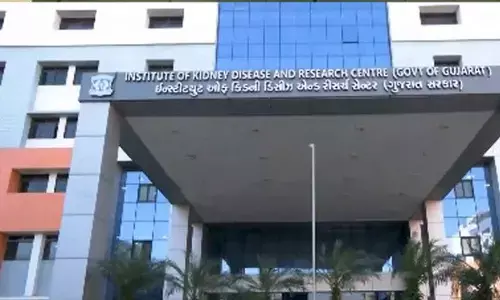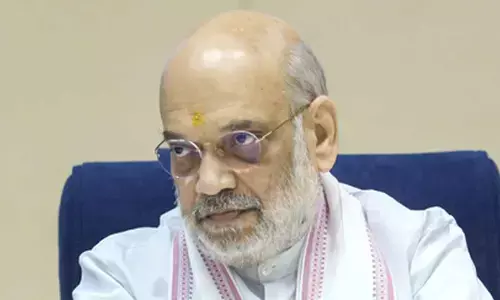How consumers can play a key role in making agri-food systems more sustainable
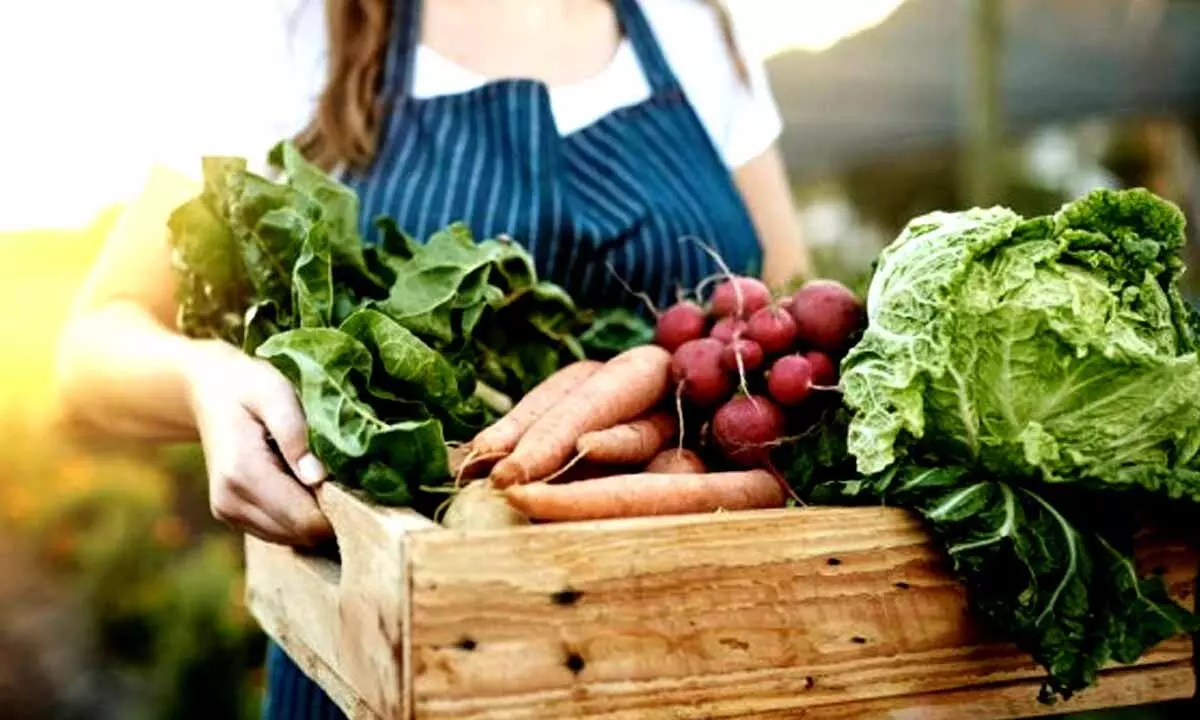
How consumers can play a key role in making agri-food systems more sustainable
Addressing the Khalsa College at Amritsar the other day, I said the next revolution in agriculture will be consumer driven.
Addressing the Khalsa College at Amritsar the other day, I said the next revolution in agriculture will be consumer driven. A few weeks later, delivering the keynote at a national convention on non-chemical farming under the banner of "Kudrat Utsav" organised by the non-profit Kheti Virasat Mission (KVM) at Chandigarh, my call to the audience, which comprised primarily of urban consumers and practitioners, was to exercise their right in demanding safe and healthy food.
Why I listed the two events is to essentially drive home the point that the next revolution in agriculture will be largely influenced by the consumers. Unlike the Green Revolution, which increased crop production manifold to meet the challenges of food shortages, the next major transformation in agriculture – let's call it as an Evergreen Revolution, a term that was first used by Dr M S Swaminathan -- will be driven by health and environmentally conscious consumers. The demand for organic food has been growing, and given the increasing realisation of the need for healthy food to boost your immune system, I can foresee an exponential jump in the years to come.
The organic food market in India is projected to grow by a compound annual growth rate (CAGR) of 20.5 per cent in the next five years, between 2022 and 2027. This is impressive, and given an increased understanding among consumers of the damaging role intensive agriculture plays in climate change, the demand will further grow. The higher the demand for organic food, the higher will be the pressure on farmers to move towards a healthy transformation – from chemical to non-chemical farming systems.
In the years to come, the Intergovernmental Panel on Climate Change (IPCC) has in a series of reports warned of the destructive consequences of a temperature rise beyond the permissible limits. Considering that agriculture contributes approximately a third of the Greenhouse Gas Emissions (GNGs) that the world generates, consumers are becoming aware of the devastating consequences of higher emissions. Further, with soil fertility declining to almost zero in intensively farmed regions; and resulting soil erosion expanding the process of desertification, the harmful implications that stare ahead are clearly visible. Add to it the excessive mining of groundwater which is sucking aquifers dry, more so in exhaustively farming regions -- like Punjab and Haryana in India -- and with chemical pesticides becoming extremely pervasive in environment, an average consumer is becoming aware of how the entire food chain has been contaminated.
The development narrative too is changing. The irreversible impacts of climate change – if temperature exceeds 1.5 degrees centigrade – are not only well known, but equally frightening. More droughts and heat waves will ravage the planet. Already studies are pointing to displacement of 700 million people in Africa if the warming is not kept within the prescribed limits. Frequency of cyclones, storms and extreme weather conditions is increasing. Rise in sea water level will wipe out coastal communities in several parts of the world, and many island nations will disappear. Already glaciers are melting at an alarming rate, and weather precipitation is necessitating a shift in habitats. This is expected to bring an additional 350 million people to be faced with water scarcity.
I don't think the consumer is insensitive as well as indifferent to the severe consequences of climate change at home, and they do worry about the possibility of an apocalypse in future if business as usual continues. That is why from building more heat-absorbing concrete jungles, the focus is now shifting to greener cities of the future. From fossil fuel to greener fuel options – like solar and electric power, so much so that many discernible among them are beginning to question even the economic growth model. Chasing the GDP is leading to the destruction of natural resources, and increasing a global movement for degrowth and green growth as a pathway is also building up.
People do realise that farming is increasingly vulnerable to the climatic aberrations. But unfortunately, the solutions being offered remain the same: more aggressive push for industrial agriculture. Despite the dominant economic thinking remaining inclined towards intensive farming systems, citing the possibility of increasing hunger and malnutrition with a transformation towards non-chemical farming systems, consumers can still play a significant role by seeking foods that are cultivated by regenerative agriculture practices that does minimal harm to the environment.
Consumers need to be doubly cautious about their food habits ensuring that it does not lead to more toxic soils, more water being pulled out for crop cultivation, and does not allow for cultivation practices leading to further contamination of the food chain. Already there is a visible shift towards safe food globally, slowly but steadily it is growing in proportion. Instead of large industrial farms, the emphasis has to shift to small scale agriculture which as per numerous research studies is more efficient than big agriculture. A small scale agro-ecological farming method is the crying need of the times. Public policies are increasingly coming under pressure to encourage a transformation towards ecologically safe small scale farming systems.
This is a healthy sign. The fact that consumers are asserting that food has to be healthy, meeting the needs of nutritional security, is indicative of the growing public support for non-chemical agriculture. And the need for healthy nutritious food is driving a change in food habits, and the shift towards nutritious foods like millets, coarse grains, pulses, vegetables and dairy products is evident. Already the area under millets has expanded, and farmers are getting a better price. Requiring less water, millets can very well fit into a farming system that is climate resilient. Since staple foods - wheat and paddy - will face reduction in yields because of rising temperatures, the demand from consumers should hopefully shift to crops that can fit into the changing climate.
Why I am hoping that consumers will call the shots in the years to come is because with ample food production that the world is saddled with, and despite agri-business industry creating a fear psychosis, people do realise that there is no evidence of any shortfall in food production. A third of what the world produces every year goes down in the landfills. If food wastage was a country, it would have ranked third in global methane emissions. The challenge therefore is to first reduce the monumental food wastage. Therefore, it is not wrong to say that people are aware they now have the option to freely exercise their food choices.
If the world doesn't transform towards a healthy and ecologically safe farming systems, consumers must take the blame. After all, if they had demanded for instance the food that does not require more use of chemical fertilisers and pesticides, which definitely adds on to global warming, the farmers would have got the right message. The more the consumers assert, the more the farmers will change. The key to the next revolution in agriculture therefore lies in the hands of consumers.
(The author is a noted food policy analyst and an expert on issues related to the agriculture sector. He writes on food, agriculture and hunger)








